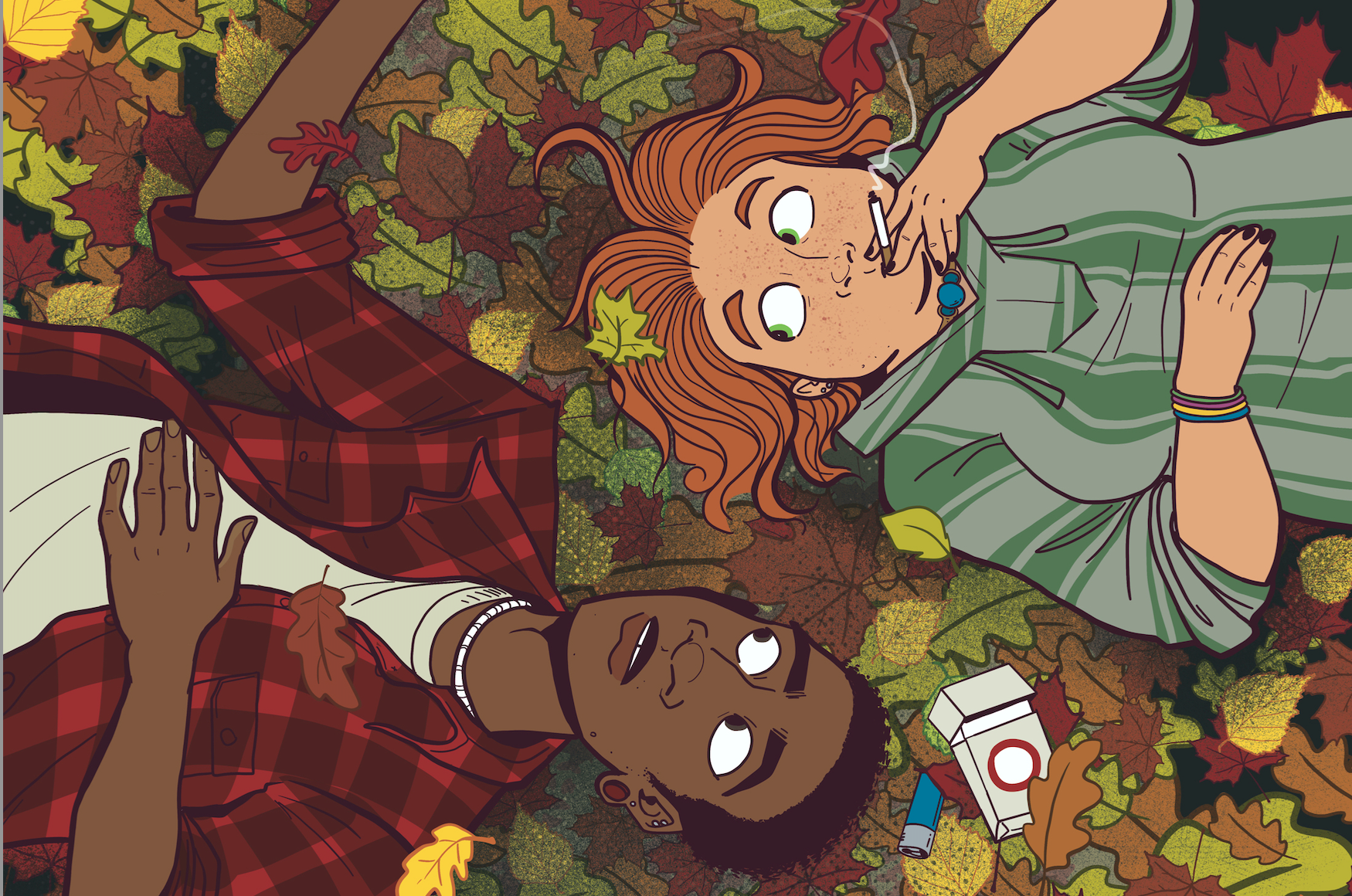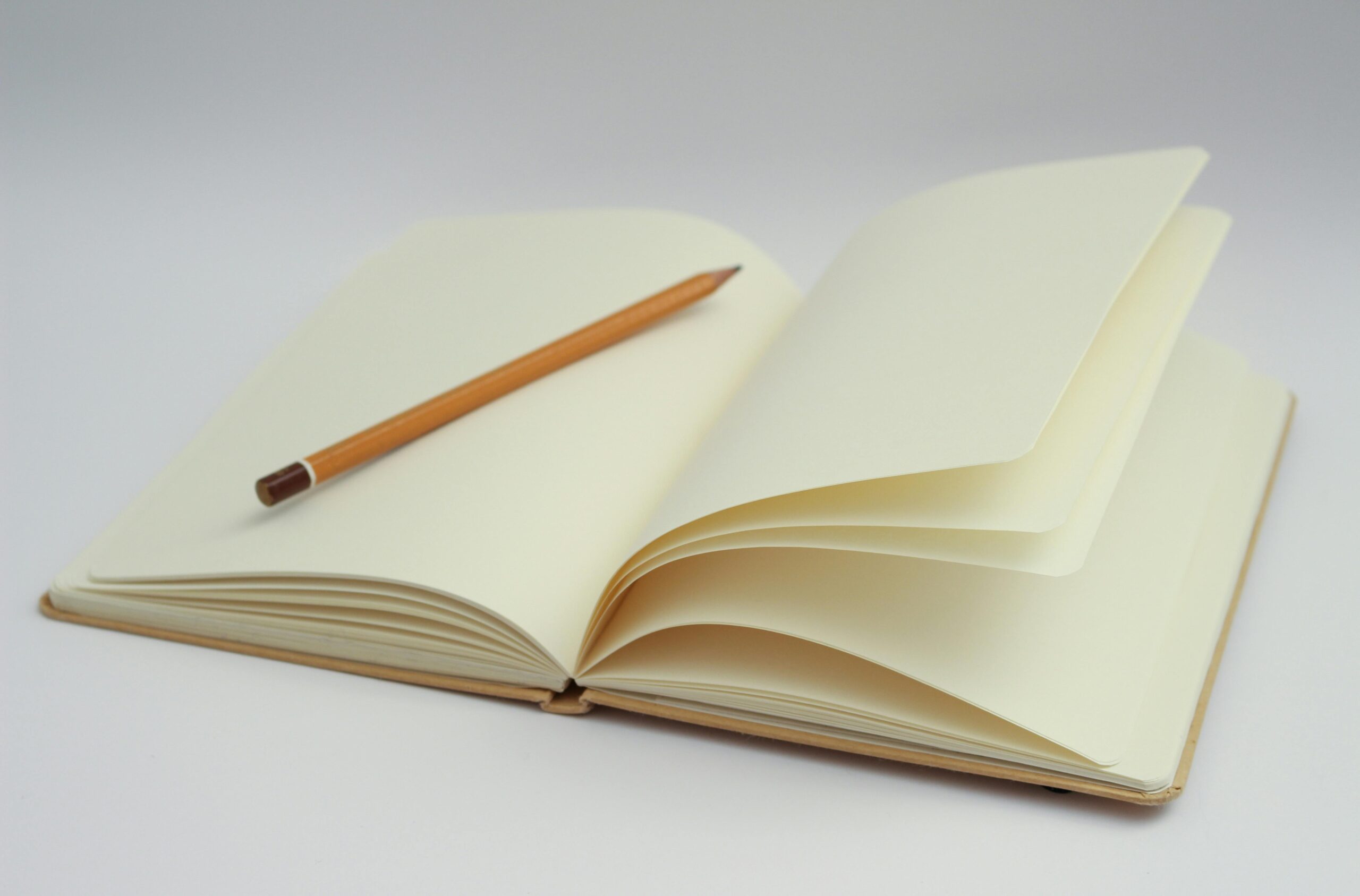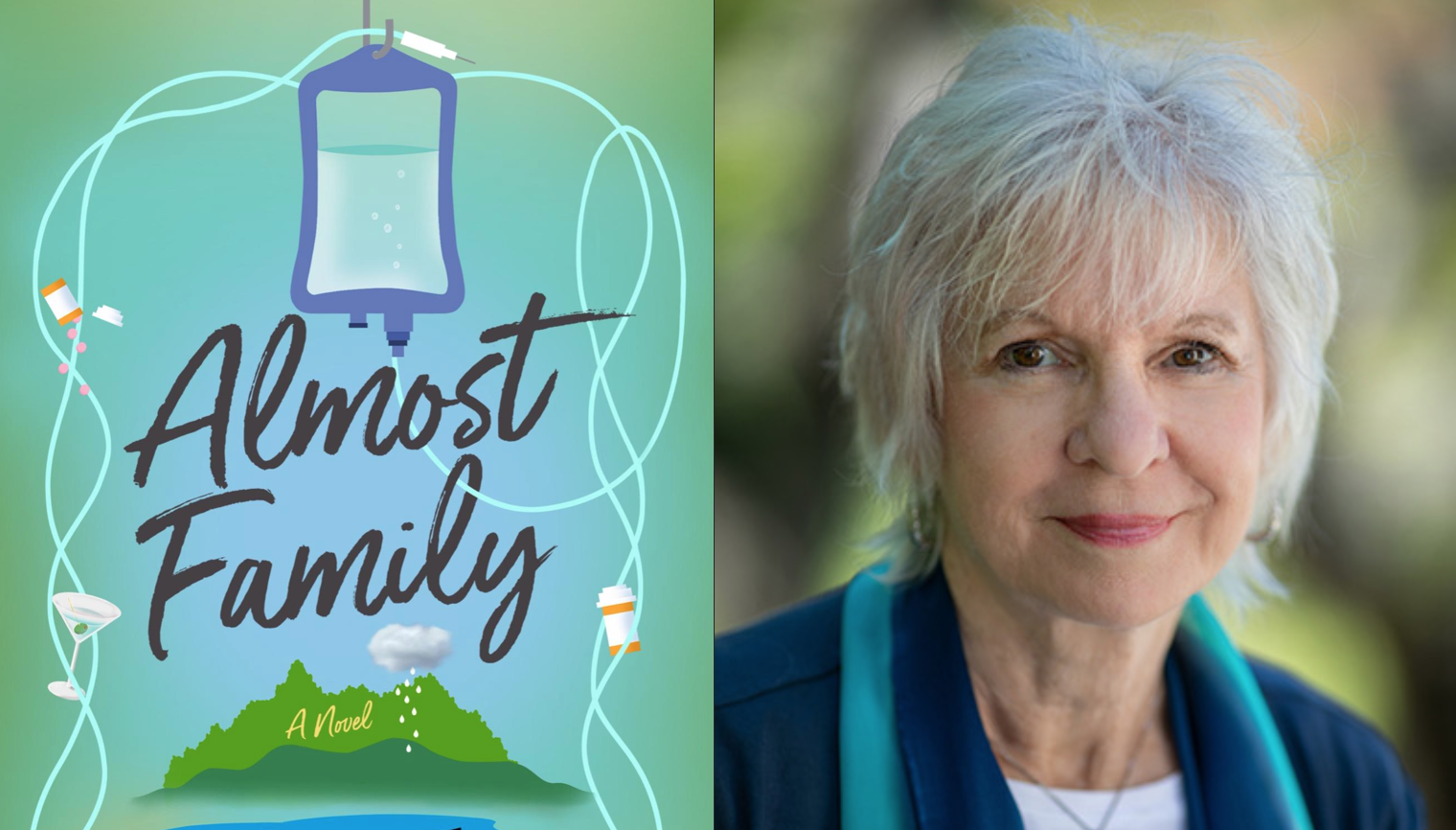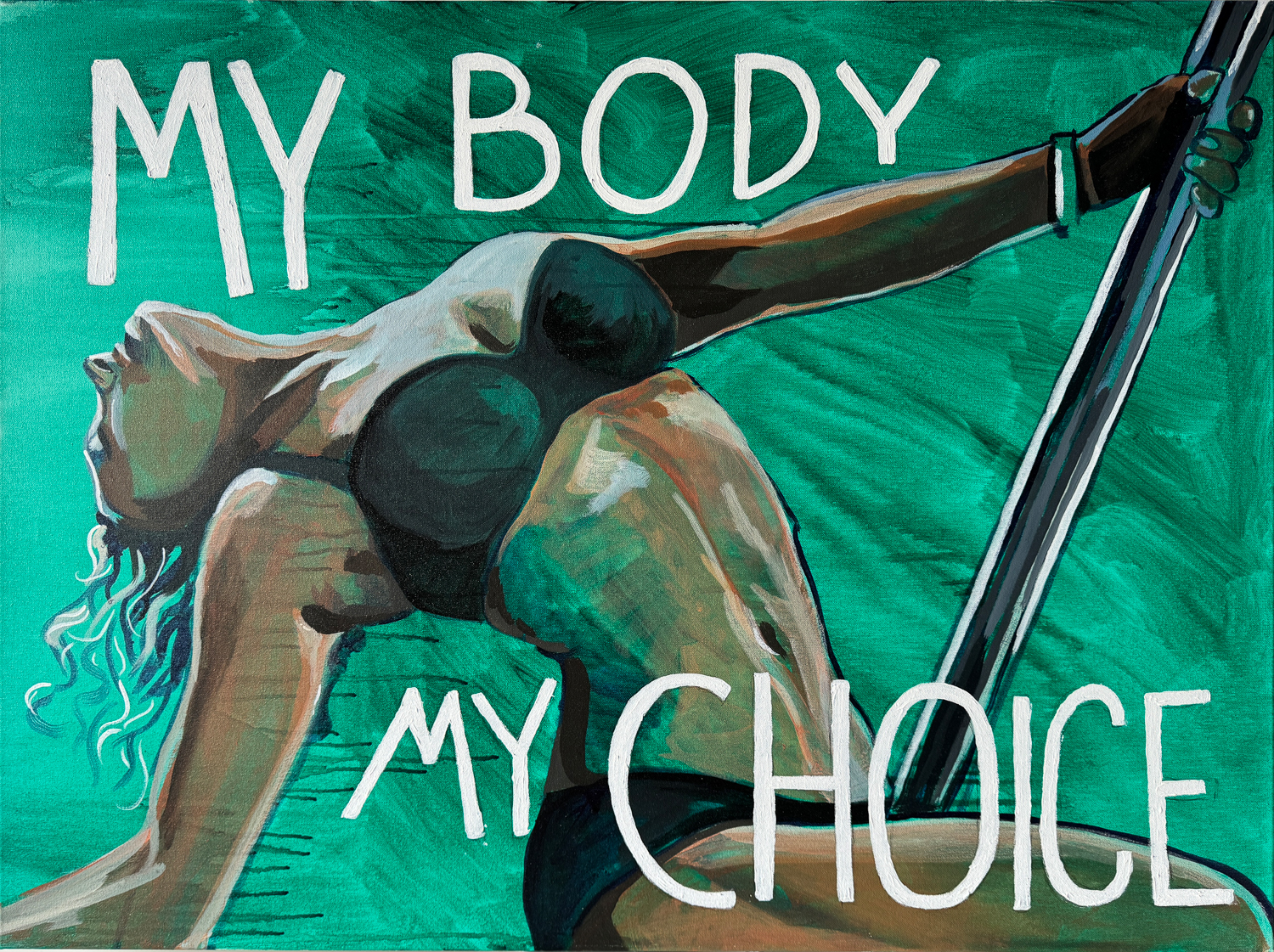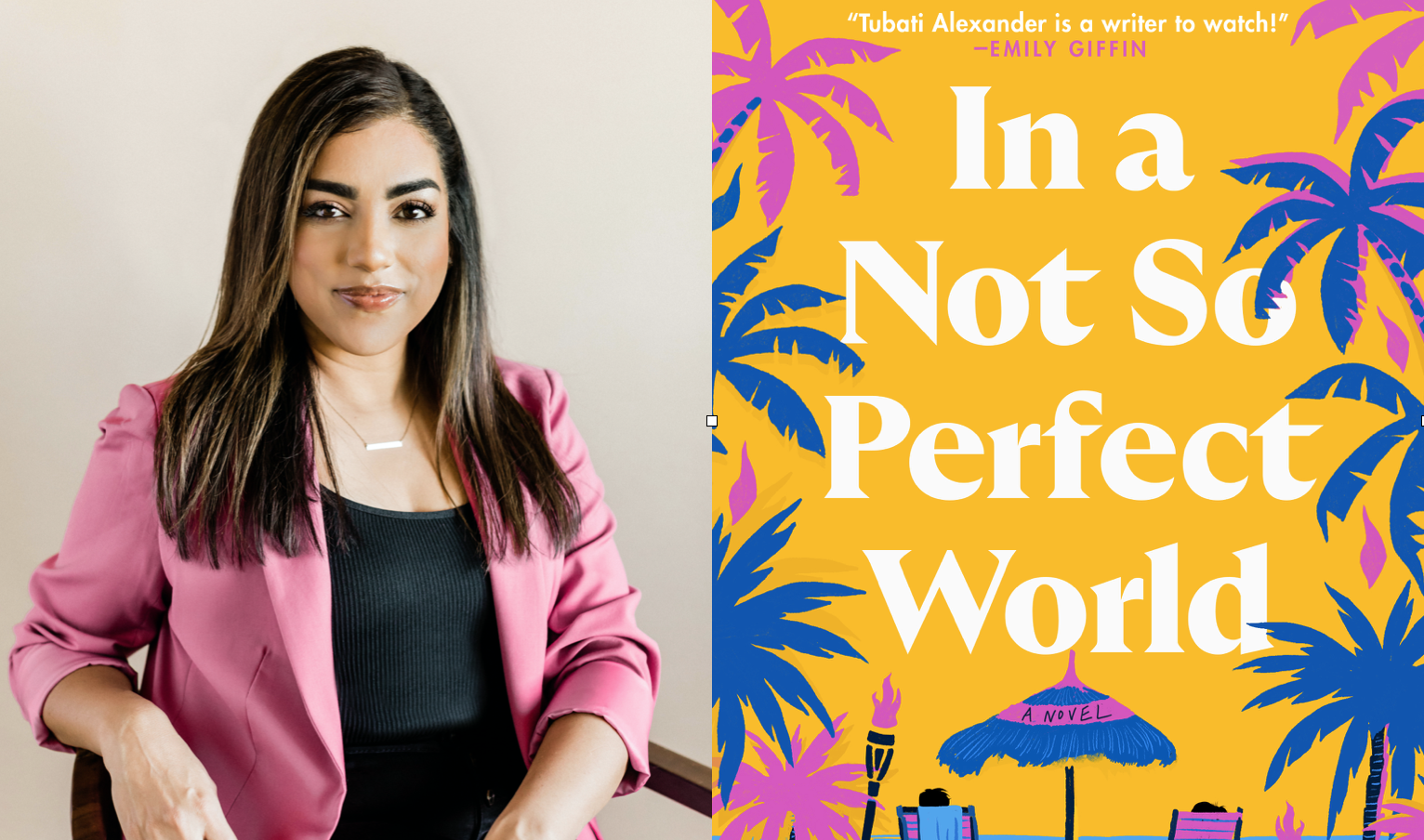
Arriving just in time for Pride Month and to add to your summer reading list, debut author Marissa Alma Nick’s ‘Rebel In Venus’ (out May 26) is a semi-autobiographical honest story of redemption, an intimate portrait of friendship, the impact of trauma, the power of our first love and loss. It is a coming-of-age story, about a woman who is realizing she can no longer outrun herself.
‘Rebel in Venus’ takes place over a girl’s night in, spent between best friends, Maria and Layla. Over the course of the witty and unexpected evening, Layla’s memory is jolted, and her once carefully repressed past begins to return to her, triggering a sequence of events that ultimately jeopardizes Layla’s unconventional life. The bold, and sometimes brutally honest stories that unfold, are filled with sexual revelations, high-school humiliations, unwanted pregnancies, unwavering friendships, sex work, divorce, and loss. As the confessions unfold, Layla’s anguished past starts to crystallize and challenges the strength of her friendship with Maria, as well as Layla’s own life. Will Layla learn to save herself in time? Or will her past win over her ability to see a future?
Marissa never had any major plans to become an author, but after an injury put her dance career on hold, the tragic news about the death of a close friend, as well as the start of the pandemic in 2020, writing became a lifeline for her. A startling headline in the Washington Post, outlining the how teen girls are at an increased risk of suicide today, also became a catalyst for Marissa to incorporate teen mental health into the story.
As we head into Pride Month in June, and as we round out Mental Health Awareness month in May, we had the chance to speak with Marissa about her debut novel, why mental health is so important to her personally, and releasing ‘Rebel in Venus’ while living in a state (Florida) whose governor is making it his mission to ban books he doesn’t align with politically.
TW: mentions of suicide and sexual assault.
Writing wasn’t the career you started out in. So how did your writing career begin?
I’ve mostly been a professional dancer and choreographer since I was fifteen, and I started my own dance-theater company in 2015. Dance is the world I’ve always been in, and the only world I ever really ever thought I’d stay in. But losing everything can make you fearless, and trauma also changes you.
In December 2019 my right meniscus tore while performing. This required a surgery, with a year long rehab, crutches for 2 months, and no guarantee I’d fully recover to full performance level as a dancer again. Then two weeks after my surgery – on Jan 1, 2020 – one of my best friends died by suicide and I didn’t take that very well, to say the very least. Then a couple months later the pandemic hit…
Somewhere in all that, I started writing while I was simultaneously in intensive therapy treating my own depression, and trauma. And where I’d normally have dance as my creative outlet, my body was still recovering, and I could barely walk, so I leaned into writing even more.
I had written short stories, and treatments for screenplays before, but secretly and in private. Like I said, losing everything made me feel fearless and I decided I’d share what I had started writing with an editor I had met. They encouraged me to take it seriously, and had agreed to work on the book with me.
And so three years later, here we are! I am now a dancer, a choreographer and a writer.
Where did the idea for ‘Rebel in Venus’ come from, and what did you draw inspiration from?
The reference in the title itself comes from my love of Greek mythology, which I’ve loved since I was little. I’ve just always enjoyed the folk-lore, and story-telling of it all. And then at some point in my twenties, I got into Joseph Campbell, and the heroes journey. I really liked the completion of it all, and becoming your own hero. A journey to the self that changes who you are, and the rest of your life, really.
Funnily enough, I had a hard time seeing myself as a hero, let alone a goddess, or someone who could be seen as one. Actually, I didn’t see or read about anyone like me, or my friends and people in my life, being portrayed as the hero of themselves. For the most part. So the title, Rebel In Venus, is really a message in itself.
It’s saying that there is more than one way to define what it means to be a goddess. A goddess might be messy, not white, not born with a vagina, they or she may make mistakes – many times. A goddess fights for herself, she loves herself, and she may not make babies. She or they may not be soft, or docile in nature. She might have survived abuse. She might not identify as she, and they might be queer. They might be loud, expressive, and feisty. They may love having sex… a lot, for the sake of pleasuring themselves. And right now, at this very moment, a goddess might be wandering in the dark, before she can even stumble into her own light.
Historically speaking, when any woman defines herself for herself, that’s been seen as an act of rebellion. So the title is also a reclamation for our power.
We’ve all heard the saying “write what you know”. Would you say this is true, and if so, how does it relate to you?
Absolutely. I know depression, I know shame, and abuse, I know what is to live for decades with untreated CPTSD, to loose someone to suicide, to consider my own suicide, to be a sex-worker, I’ve had an abortion, I’ve been married and divorced, I’m queer – all of those experiences are very present in ‘Rebel In Venus’ and in parts of Layla’s journey. I used all of those pieces of me, so that I could write life into these characters from a more first person perspective. I think it gave me a window of opportunity to possibly write with a little more empathy.
What are some of the themes that Layla goes through in the story?
Depression, abuse, anxiety, sexual harassment, suicide, self-acceptance, self-love queerness, and friendship.
May is mental health awareness month and the book discusses this important issue. Can you share more about this?
My best friend (the one I lost to suicide), I know that I, or anyone, couldn’t have done anything to stop her, but I still wanted to write a book for her. I imagined that if she would have read it, it might have made her feel differently about herself. Ideally, I’d romanticize her feeling less shame about herself, and maybe she would’ve even seen herself as a hero, and not a burden.
And myself, too. I just recently, in the last couple of years, started to feel less shame around my own treatment for my depression, anxiety, and PTSD. I’m just now learning how to talk about it with my parents, who I’m very close with, and others I love as well.
Overall, I think there is still a great deal of shame around mental health, the treatment of it, the stigma against it, and honestly, just being able to ask for help is not something we do often. We’ve all become independently isolated. And I just wanted to contribute to the growing culture around creating awareness for mental health. So many of us aren’t talking about it enough and the one thing we can do to suffer a little less, is try to eliminate both the internal and external shaming.
This is really important to me. So even in the front, and the back of the book, there’s a trigger warning to offer sensitivity to anyone who might be in a more fragile state, and they have the autonomy to decide if it’s the right time for them to read the book. And also, at the end of the book, there are the phone numbers to two hotlines: The National Sexual Assault Hotline and The National Suicide Prevention Lifeline.
My hope is that this book might save one life, aside from my own. That’s a big ask, but I hope this book helps them see themselves as the hero, and not a burden.
Can you talk about the statistic relating to the rise in teen girls and suicide, and how this impacted what you wrote about?
That statistic hurts my heart every time I think about. It’s a unique experience becoming a teen-girl in America, in any decade really. But especially right now. And for me personally, that was a difficult time, and the more I’ve healed that part of my life, the more my empathy, and respect for todays teen girls grows. I have also had the privilege of teaching teen-girls dance over the past ten years. So while writing this book these past three years, I had a lot of these teen girls right there in front of me, daily and weekly, teaching them, listening to them, considering them and worrying for them.
I thought about teen-girls A LOT while writing ‘Rebel In Venus’…and I was considerate of what I wrote, and how I wrote it. And not just for them, but for their parents, their teachers, and other elders as well. Maybe this book could be a channel for them to understand the very nuanced and intimate experiences of teen-girls in America, not just in the early 2000’s (when Layla is a teenager) but also today, in 2023.
And for the teen girls who I figured would get their hands on this book (against all bans!) I wanted them to walk away not feeling alone but instead maybe hopeful. I wanted to them to know it’s okay to ask for help. I also wanted to inspire them to have deeper, and more meaningful friendships (off or online). I hope for them to “find their Maria”, and know it’s okay to be vulnerable, create safety, boundaries, cultivate healthy friendships that might save them one day.
Why do you think shame is still such a powerful weapon used against teen girls especially?
I think shame is still used as such a powerful weapon, in order to keep teen-girls from growing into women, who will one day become self-actualized, empowered, and sexually emboldened women who refuse oppression, or rape of any kind… no matter the circumstance, or garment. That teen girl, who will soon become a woman… she scares a lot of people. And shame is the greatest weapon for creating self-oppression of any kind.
This coming-of-age-story is about empowerment, self-realization, self-acceptance and self-love. How have you experienced this in your own life story?
I really fumbled my way toward my own enlightenment. And every day I have to actively search for tools to help me combat my own self-hatred, depression, anxiety, trauma. And self-love for me has never been easy, ever. And I don’t expect it might ever be but right now I’m in acceptance. I’m actually okay with who I am, the life I’ve lived, the things I’ve done. So if anything I do my best to stay present, excited about the unknown, get the things I need like therapy and very good friends surrounding me, do things that give me a sense of purpose, and I’m learning to say I’m not okay when I’m not okay.
In a time where we are seeing an increased amount of attacks toward queer youth, and books that feature LGBTQ stories being banned in certain states, why is it more important than ever to see authentic queer stories and experiences?
This whole time, since DeSantis has been Florida’s governor, I’ve been writing ‘Rebel In Venus’ (this parallel was unplanned). This final third year of working on the book I couldn’t believe one of the thoughts I was having was: is my book going to be banned? I didn’t write a book that I wanted to get banned. In fact, I never thought a book, or any book would get banned in America. But here we are.
And yes my book will probably be banned from Florida to some degree, and possibly in other states, because it speaks candidly about an abortion (with no regrets), open queerness as teens, specified non-binary pronouns, all the wokeness you can imagine. Yet, I’m pushing this book SPECIFICALLY into Florida local bookstores, because queer youth, and those seeking abortions (or who have had them), they need to see themselves in books, in stories, and in art. It’s arrogant, and unjust otherwise. And I refuse to go back in time.
I remember there being one little old gay shelf of literature, at my Florida college library, and I read all those books in one month. Now queer youth have access to books, on books, on books, yet it’s still limited compared to your average NYT Best-Selling, hetero-normative YA book. So we need to write more, and we need to get it out against all bans. In fact, I’m doing the book release for ‘Rebel In Venus’ at a prominent Miami bookstore: Book&Books – and I can’t pick a chapter to read from the book that won’t get banned, so to speak. Not that the bookstore is censoring me in any way – they’re wonderful!
But I am in the city where the governor threatened a restaurant for hosting a drag-brunch, and where they have to be careful about how they’re about to advertise the Broadway musical theater production of ‘Mrs. Doubtfire’, for instance. So I have to actually think: will my book get the local bookstore a forced fee, or worse?
But to me, we can’t afford to stay quiet, because of the youth. The youth deserves our courage right now, and right now as when they need us most.
What do you hope readers will love most after reading ‘Rebel in Venus’?
The friendship between Layla and Maria… it’s very sincere, vulnerable, and something to be cherished.
And also, Layla and Maria’s sense of humor. There is a lot of heavy subject matter in this book as in all our lives really. But I think a healthy sense of humor allows for us to find the light in the dark when we need it most… so I hope people will even find themselves laughing too.
You can pre order a copy of Rebel in Venus HERE, and follow Marissa Alma Nick on Instagram.












